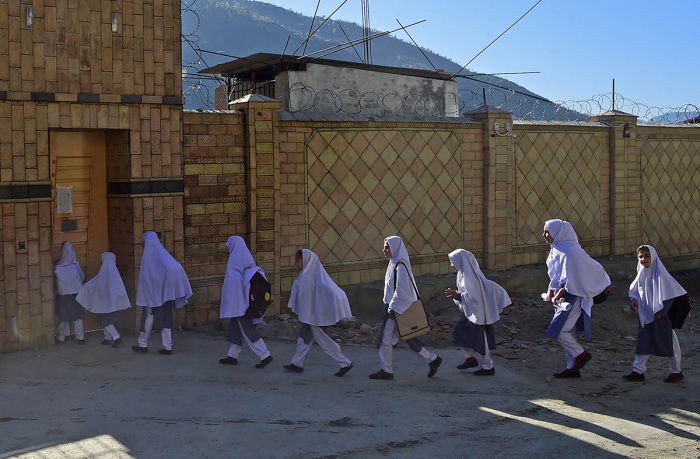Islamic studies no longer required for religious minority students in Pakistan; Christians rejoice

Christians in Pakistan have breathed a sigh of relief over the government’s decision to no longer require Islamic studies for non-Muslim students in schools at all levels.
On Jan 22, the Federal Ministry of Education and Vocational Training approved the "Curriculum for Religious Education 2023" for minority students in grades 1 to 12 (from first grade to high school), replacing Islamic studies, which was previously compulsory and influenced their average and school grades.
Welcoming the government’s decision, Pakistan Minorities Teachers' Association Chairman, professor Anjum James Paul, said the approved curriculum had been prepared for minority students belonging to officially recognized religions, namely Christianity, Hinduism, Baha'i, Buddhism, Kalasha, Sikhism and Zoroastrianism.
“This is a great victory for Pakistan’s religious minorities as we have been fighting for equitable education for the last two decades. After appealing to various governments, institutions and the superior courts, the Pakistan government has finally recognized this right of minority students and exempted them from studying Islam as a compulsion,” he said.
Citing Article 22 of the Pakistani Constitution, Paul said that no person attending an educational institution was obliged to receive religious instruction, participate in religious ceremonies or follow any religious cult other than his own. "This article is intended to guarantee freedom of religion or belief, which the government in Pakistan must protect in order to eliminate all forms of intolerance and preserve pluralism," he said.
The new curriculum for religious education will be introduced from the next school year 2024-2025, said Paul, who teaches political science at a government college in Samundri, Faisalabad District. He commented that religious prejudice in textbooks promotes a negative perception of minority communities which consequently creates an extremist mindset in society.
“School textbooks should promote interfaith and social harmony, equality, cultural and religious diversity in the country but when the textbooks for religious education only talk about Islam or portray other religions negatively the society suffers on the whole,” he said.
He added that the Christian community has already presented textbooks for the new religious education curriculum for the first through sixth grades, while teams of teachers and specialists were preparing texts on other religions.
“After the approval of the NCC, the National Book Foundation (NBF) will now publish textbooks on Hinduism, Sikhism, Christianity, Bahai, Zoroastrianism, Kalasha and Buddhism,” he said.
According to the Catholic activist, the Pakistan Minorities Teachers’ Association was now aiming to ensure that the textbooks used in Pakistani schools are free of religious prejudices.
‘Overly Islamic SNC’
In July 2020, the Pakistani government announced the creation of a ‘Single National Curriculum’ (SNC) to replace its 2006 school curriculum. However, in an attempt to make the proposed curriculum acceptable to Pakistan’s Islamist elements, and particularly to win the support of the country’s madrassas (Islamic seminaries), the government of Punjab gave the Islamic Muttahida Ulema Board (MUB) a role in the review and approval of all textbooks under the SNC.
This provided Islamist clerics with an opportunity to reinforce the sectarian and divisive religious agendas which have permeated the Pakistani education system for decades.
Under the SNC, which was enforced for children in the first through fifth grades in 2023, students, regardless of their faith affiliations, are required to undergo even more Islamic religious teaching in compulsory subjects.
While minority students have, in theory at least, been given the right to opt out of Islamic studies, the inclusion of Islamic content in other subjects presents far greater challenges, a senior church leader said.
“SNC textbooks in English, geography and Urdu all feature extensive Islamic religious content. For example, an English textbook requires all students, both Muslim and non-Muslim, to write Arabic text beside the name of the [Islamic] [p]rophet Muhammad and other prophets. This will continue to pose a serious challenge for minority students in Punjab and needs to be addressed by the government,” said Bishop Azad Marshall, the president of the Church of Pakistan.
Echoing Paul’s concerns over the religious prejudice found in Pakistani school textbooks, Bishop Marshall said that if children are taught that those who do not adhere to the majority religion are somehow different or even lesser than those who do, the pervading divisions with Pakistani society will only continue in future generations.
“Making Islamic studies not compulsory for minority students is a welcome step but the government should also review and amend the textbooks of other subjects in SNC to ensure that they do not promote the religious divide in our society,” he added.
Originally published at Christian Daily International




























